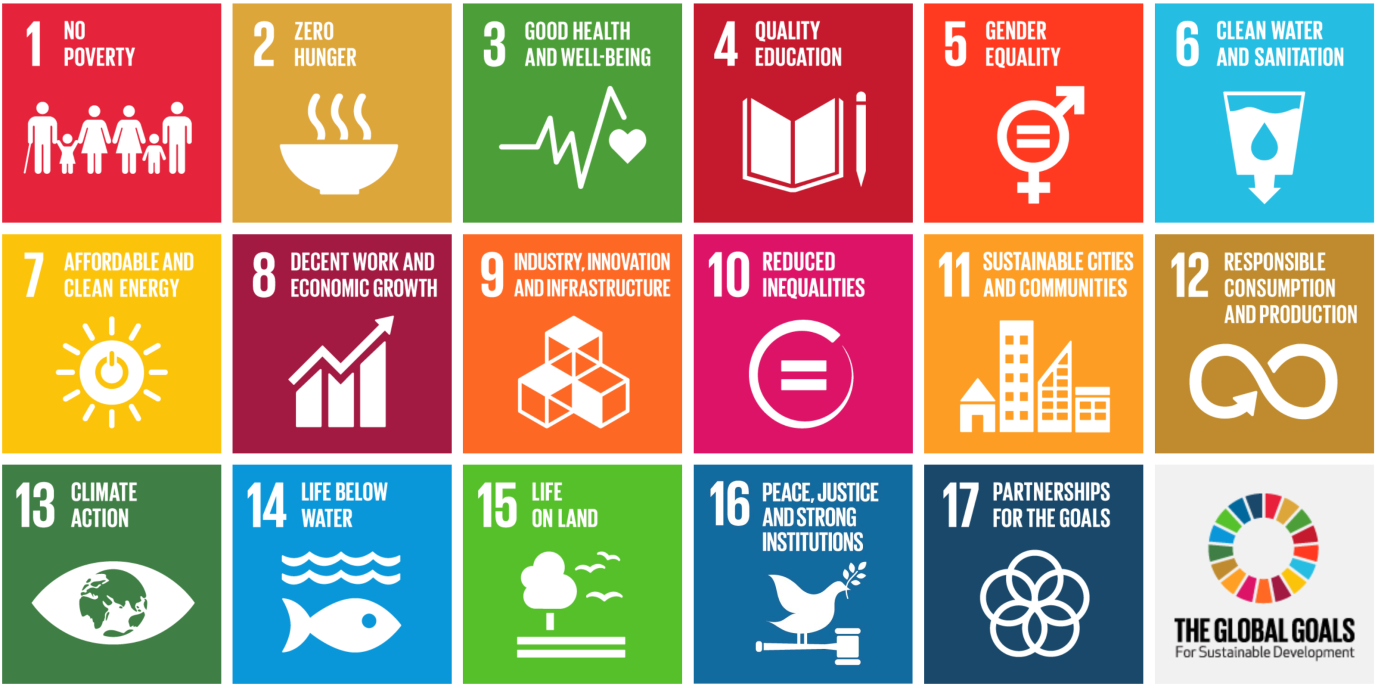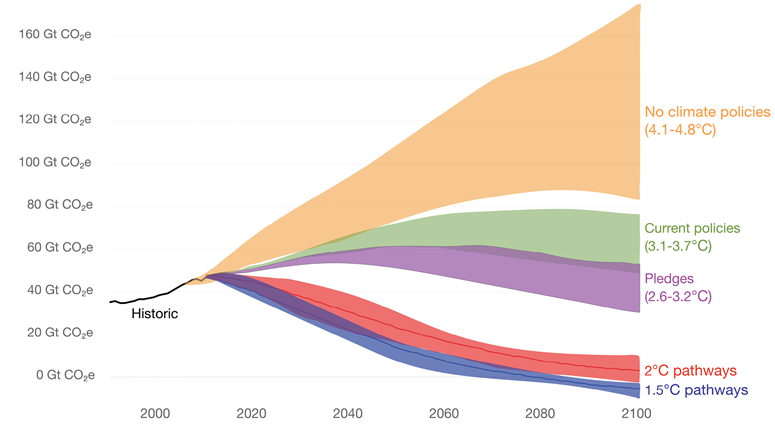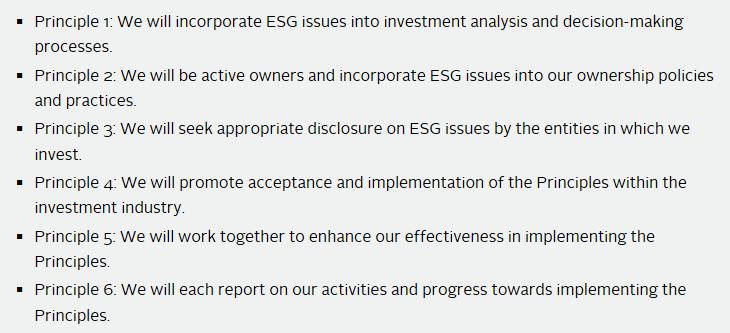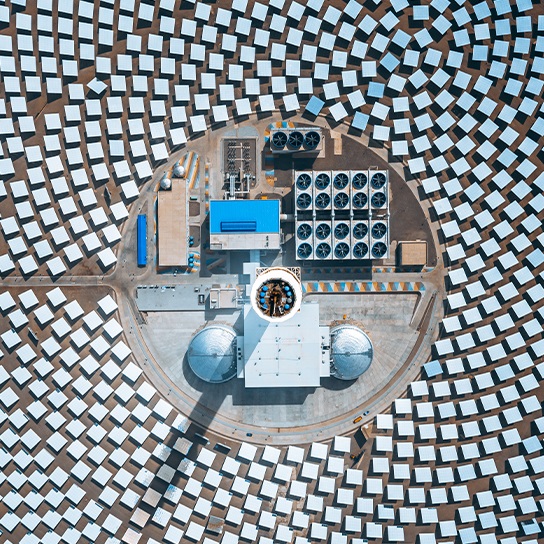Why is sustainability important?
At its essence, sustainability means ensuring prosperity and environmental protection without compromising the ability of future generations to meet their needs.
Ban Ki-Moon, Secretary General, United Nations1
There are significant challenges facing the world today. The first is climate change. Many people around the world will have witnessed or experienced first hand the effects of rising temperatures. Societies are counting the human and financial costs of higher sea levels and extreme weather events. The second is rising social inequality – the growing gap between the world’s haves and have-nots. This has led to widespread anger that, in some cases, has unleashed social and political upheaval. The third is the fact that we are consuming resources at an unprecedented rate. People are depleting the world’s natural resources which cannot be easily replaced, if these resources can be replaced at all.
These problems will only get worse if we do not act. The Covid-19 pandemic has raised urgent questions about how people interact with nature and how human food production is managed.
Global action
Most countries have acknowledged the need to do something. Multilateral organizations, such as the United Nations (UN), have been at the vanguard of recent efforts. The New York-based body has been promoting research and debate, as well as coordinating an international response.
UN Sustainable Development Goals
In September 2015, 193 countries adopted the UN Sustainable Development Goals (SDGs) in September 2015. There are 17 SDGs that, collectively, make up 169 individual targets. These goals provide guidance to governments, companies and civil society on how to identify and pursue sustainable development priorities. The SDGs will likely guide public policy and private sector capital allocation until at least 2030.
Chart 1 – UN Sustainable Development Goals
Source: United Nations, 17 Sustainable Development Goals (SDGs)
Climate change is covered under Goal 7 (affordable and clean energy) and Goal 13 (climate action). Inequality is covered directly by Goal 10 (reduced inequalities) and indirectly by Goal 4 and 8 (quality education and decent work and economic growth, respectively). Unsustainable consumption is addressed by Goal 12 (responsible consumption and production). The UN’s sustainable development goals are ambitious. Estimates of the investment needed range from some $5 trillion to $7 trillion per year.2
These goals can only be achieved through partnerships between governments and the private sector. Global asset managers – with more than US$80 trillion of assets under management3 – have an important role to play.
Paris agreement
Most countries accept that decades of burning fossil fuels harmed the environment. Greenhouse gas emissions in the atmosphere, linked to oil and coal consumption, are a major cause of rising temperatures around the world. Therefore, in 2015, more than 180 countries committed to the Paris agreement which was signed at the 21st UN Conference of the Parties (COP 21) in Paris, France. This is the world’s most significant international climate treaty. Signatories agree on the need to restrict future temperature rises to "well below" 2°C from pre-industrial levels, in order to limit environmental and economic damage.
Individual countries have also established Nationally Determined Contributions (NDCs). NDCs resulted in more carbon emission reduction targets, as well as an increase in climate change-related policies.
There has been progress — in some regions more than in others. But the level of ambition and urgency to reach the goals of the Paris agreement have fallen short of initial hopes. The cost of too-little-too-late is almost certain to be serious. In 2018, the Intergovernmental Panel on Climate Change published a special report which compared the implications of warming by 1.5°C, with the effects of a 2°C rise.4 The report warned of severe consequences for people, economies and ecosystems if warming exceeds 1.5°C.
Chart 2 – Global warming pathways
Source: Special Report on Global Warming of 1.5°C, IPCC, September 2018
UN Principles for Responsible Investment
The Principles for Responsible Investment (PRI) is another UN-supported initiative. Asset owners and asset managers around the world have an important role to play in supporting sustainability. These six principles were designed to promote responsible investment as a way of enhancing returns and better manage risk. They were developed by an international group of institutional investors that recognized the growing relevance of environmental, social and governance (ESG) issues to investment practices.
ESG analysis is the holistic understanding of how environmental, social and corporate-governance issues affect the risks and returns of an investment. At Aberdeen Standard Investments, it is a top-down as well as bottom-up process. These guiding principles offer practical advice on how to help steer private capital towards supporting sustainable development priorities. They encourage institutional investors to pursue and demonstrate action across four areas: investments, corporate engagement, investor disclosure and policy advocacy. In fact, we have aligned our own investment process with these principles.
Chart 3 – UN Principles for Responsible Investment
Source: UNPRI, 2020
Why should investors care?
Responsible investing that channels private capital into sustainable investment strategies is no longer something just "nice to have." ESG analysis needs to be an integral part of all investment decisions.
More investors – asset owners and asset managers – need to think about the global trends that are shaping the world we live in. And many are doing so already. Younger generations of investors don’t want to see society and the environment damaged beyond repair because of their investments. They want to see something that generates a positive outcome, in addition to a financial return.
People with innovative ideas and solutions that can address these big global challenges will be better placed to make money, as well as help society and the environment. However, finding solutions can’t be left to investors alone. Investors need a clear framework in which to operate. So governments need to think about regulations. Civil society must play a role in challenging practices that are unsustainable.
Developing technology is a game changer. Social media has raised awareness of environmental issues linked to oil and gas companies, or of access-to-medicine issues linked to pharmaceutical firms, for example. Business ethics concerns associated with the banking and finance industry have also been in the social media spotlight.
Attitudes within the investment and corporate worlds are changing. The extent and degree depends on where in the world you look. But there have been encouraging developments:
- Asset owners are embracing sustainable strategies. Australia, for example, is a pioneer of ESG integration into investment decision-making. This was fueled by the country’s massive superannuation pension funds, also known as "super funds." In Japan, the Government Pension Investment Fund (GPIF) plans to increase allocations in ESG-approved investments to 10% from 3%.5 This is an amount equal to some $29 billion. One of Europe’s most influential managers, Norges Bank Investment Management, plans to sell off its oil and gas exploration assets. It will only retain those oil and gas companies that invest in renewable energy and low-carbon technologies.
- Companies are under pressure to change. This is to meet the evolving expectations of policymakers, asset owners and public opinion. Clearly the extent of this varies across jurisdictions, but this is most noticeable in more progressive markets. In Canada, many investors are demanding that companies provide reliable ESG data in greater detail and volume. Meanwhile, France requires companies to have good oversight of their operations and supply chains. Firms must comply with health, safety, environmental and human rights obligations.
- Asset managers are heeding the call. Fund managers around the world have been keen to demonstrate their commitment to ESG tenets. One way to do so is by signing up to internationally recognized agreements such as the UN PRI. The PRI has about 2,500 signatories, comprising mostly asset managers, 500 of which were added during 2018/2019. Growth was particularly strong in China — rising about 64% — albeit from a low base.6
Digging deeper – Climate change opportunities
Climate change has significant implications for investors. Companies and economies will likely incur major costs during the global transition from fossil fuels to low-carbon energy sources. In addition, there will be significant costs from increasing physical damage linked to climate change, and considerable investment in adaptation to limit this damage. Investors need to understand how these changes will affect the value of their investments. This involves gaining an in-depth understanding of how each company is exposed to material issues related to climate change, and what these companies plan to do to tackle these challenges.
This said, there are opportunities as well. The transition to a low-carbon economy will require large amounts of private capital to construct renewable energy infrastructure, low-carbon transport and improve energy efficiency. Investors will play a critical role by allocating this capital.
Climate change: energy-transition opportunities
The International Energy Agency (IEA) estimates that achieving a Paris-compliant energy transition requires around $3 trillion in investment every year, mainly in renewables and energy efficiency.7
The opportunities for investing in low-carbon energy sources and technologies are considerable:
- Renewable energy generation & storage
The growth in renewable energy required to meet the Paris goals is significant. Investment in energy storage and transmission is also needed to address the intermittency issues of renewable energy and to enable a higher percentage of renewables on a power grid. - Energy efficiency
Using energy efficiently – in buildings, industry and transportation – is going to be vital. Regulations, such as the Minimum Energy Efficiency Standards (MEES) for buildings in the U.K. and the fuel efficiency standard regulation in Europe, are in place in many regions. While these rules impose additional costs for some sectors and businesses, they also provide opportunities for others to tap into new energy-efficient technologies and products. - Electrification of transport
The shift towards electric cars and other vehicles provides investment opportunities along the whole electric vehicle value chain. This is from the provision of raw materials and the production of components, such as batteries and fuel cells, to the final assembly of electric vehicles. - Carbon removal
It’s not just about reducing carbon dioxide emissions (which contribute to global warming). It’s also about removing it altogether. Negative emission technologies, such as carbon capture usage and storage (CCUS), are expected to play an important role in Paris-aligned scenarios.
Unfortunately, the rollout of CCUS technologies is behind schedule. Carbon prices are too low to make CCUS a commercially viable investment opportunity. This may change in future, depending on the stance that governments take on incentivizing carbon removal.
Climate change: adaptation-related opportunities
There is a growing need for investment in adaptation to make businesses, cities and countries more resilient to the effects of climate change. Adaptation commitments are also an important part of the NDCs as part of the Paris agreement.
A number of areas deserve particular attention for adaptation opportunities:
- Infrastructure – Coastal cities, for example, require engineered protection from sea level rises. A global analysis of 136 coastal cities reported indicative annual adaptation costs of $350 million per city, or approximately $50 billion annually in total.8
- Water and soil management – Investment in water efficiency, restoring the water supply-demand balance and addressing the issue of deteriorating soil quality. This is particularly important in agriculture, but also other water-dependent sectors in water-stressed regions.
- Technology – There is growing demand for certain technologies, existing and new. For example, rising heat in buildings leading to the growing need for cooling equipment. Innovative technologies to reduce water intensity and make water usage more efficient.
1 UNPRI, Investors and the Sustainable Development Goals, October 2017
2 UNPRI, Investors and the Sustainable Development Goals, October 2017
3 Aberdeen Standard Investments, Impact Investing – Embracing the UN’s Sustainable Development Goals in Investment, February 2018
4 Special Report on Global Warming of 1.5°C, IPCC, October 2018
5 Reuters, Japan’s GPIF to raise ESG allocations, July 2017
6 UN PRI Annual Report, 2019
7 International Energy Agency (IEA), World Energy Outlook, 2018
8 United Nations Adaptation Finance Gap report, May 2016
IMPORTANT INFORMATION
Companies mentioned for illustrative purposes only and should not be taken as a recommendation to buy or sell any security. It should not be assumed that recommendations made in the future will be profitable or will equal the performance of the securities in this list.
Foreign securities are more volatile, harder to price and less liquid than U.S. securities. They are subject to different accounting and regulatory standards, and political and economic risks. These risks are enhanced in emerging markets countries.
US-010720-120443-1





